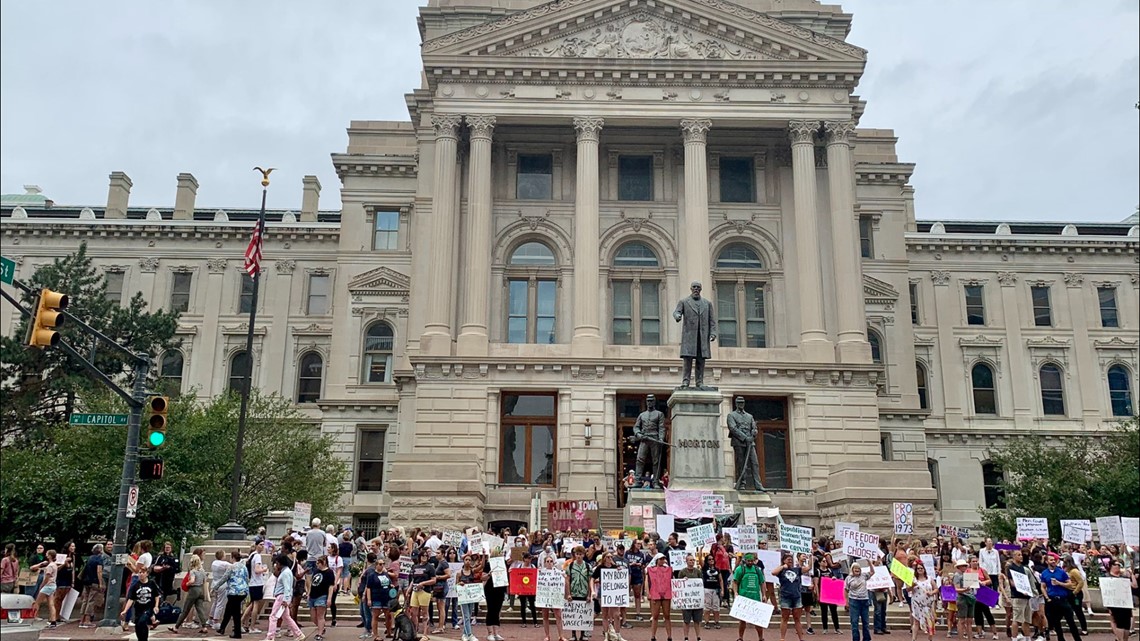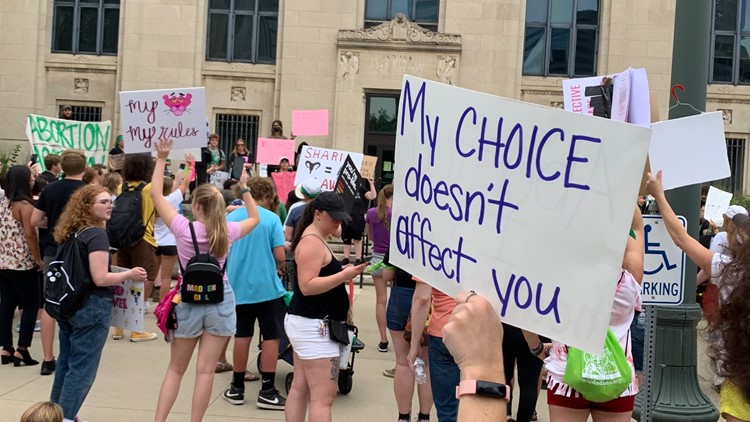MICHIGAN CITY, Ind. — On Sept. 15, about five weeks after the male-dominated Indiana General Assembly passed and Gov. Eric Holcomb signed some of the most sweeping abortion restrictions in the nation, SEA1 goes into effect.
Some of the reactions have been predictable. The American Civil Liberties Union filed suit to block the new law and, in a second filing, claims that SEA1 violates Indiana's Religious Freedom Restoration Act.
Carson Gerber of CNHI reports that SEA1 will send more kids into the state's swamped foster care system, observing that 10 out of every 1,000 children will enter that system (the national average is 6 out of 1,000). "The projected uptick comes as the state’s child welfare programs face ongoing strain from a severe worker shortage that has forced some agencies to delay critical services," Gerber reports. "The strain is tightened by the lack of foster families available to take in about 13,000 children who need homes. More children coming into the foster system would add to an already large pool of kids who need help in Indiana, which consistently ranks among the top five states for the number of kids being placed in foster care."
Then there are new political realities. A late August Wall Street Journal poll revealed that 60% of respondents believe abortion should be legal in all or most cases, up 5% from March. “Republicans were cruising, and Democrats were having a hard time,” said Republican pollster Tony Fabrizio. “It’s almost like the abortion issue came along and was kind of like a defibrillator to Democrats. Male independents did not really change. Female independents, because of the abortion issue, changed their opinions and their votes."
According to Tom Bonier, CEO of the Democrat-consulting group TargetSmart, Indiana has seen a 6% female gender gap in new voter registrations since the U.S. Supreme Court's Dobbs ruling on June 24. That type of surge was most pronounced in Kansas, which saw a 40% surge in the post-Dobbs gender gap, paving the way to a stunning 59-41% referendum that keeps abortion legal in a state Donald Trump won by 15% in 2020.
This emerging registration gender gap is taking place in other red states such as Idaho (18%), Wisconsin (17%), Louisiana (13%), Arkansas (12%), Ohio (10%) and Missouri (10%).
It was telling that few Hoosier Republican legislators put out statements lauding SEA1, which passed with virtually no one testifying in favor. We've also witnessed a number of Republicans scrub hard-line abortion restrictions from their websites after winning primaries.
FiveThirtyEight's Nate Silver explained, "I still think the Supreme Court’s decision to overturn Roe – and maybe declining inflation – are the more important factors in Democrats’ recent surge. But Republicans are behaving in atypical ways for an opposition party in the mid-terms, and they may get an atypically poor outcome as a result.”
I asked Gov. Holcomb why Republican legislators passed and he signed SEA1 when polling revealed wide opposition to first trimester abortion restrictions. "Because they and I did what we would do what we said we would do,” Holcomb responded. “I think the bigger story would have been if Republicans answered the question one way before the big vote and then voted differently. That would be a story."
Holcomb added, "I signed it because I thought it was progress,” adding it’s been a significant issue for the past half century, and “I would predict, for the next 50 years as well.”
The battle for the Indiana House is dominated by 42 unopposed incumbents, including Speaker Todd Huston and Majority Leader Matt Lehman. Of the 25 Indiana Senate seats up in November, eight are unopposed. An analysis by my newsletter, Howey Politics Indiana, reveals that of the 58 contested House seats, only seven are considered "tossups." In the Senate, there is only one projected tossup.


These tossup races are occurring in suburban areas placing the reelection of State Sen. Kyle Walker (Fishers and Lawrence), and State Reps. Dale DeVon (Granger), Julie Olthoff (Crown Point), Jerry Torr (Carmel) and Donna Schaibley (Zionsville) are in jeopardy. The other tossup races include two newly redistricted and open seats in Hamilton County, along with two Democrats (Rep. Terri Austin in Anderson and Rep. Mitch Gore of Indianapolis).
The reality is that the 2021 redistricting process has become a Republican incumbent protection plan. The House has a 71-seat GOP majority (out of 100 seats) while 39 of the 50 Senate seats are Republican. This, in a state where statewide Republican U.S. Senate and gubernatorial candidates win with 55-57% of the vote.
Notre Dame professor Heidi Beidinger, who is challenging DeVon, said, "I have heard from several former Republicans in my district who have reached a breaking point. For them, Indiana’s government intrusion into what should be personal medical decisions is a bridge too far.”
Democrat Joey Mayer, who is challenging Schaibley, observes, “There are horrible consequences beyond what anyone currently comprehends now that Indiana turned SB1 into a law. I would never have voted for SB1. I respect people’s right to make their own reproductive healthcare decisions!"
Indiana's voter registration deadline is Oct. 11 (You can register online at https://indianavoters.in.gov/).
Will this female voter surge accelerate and have Election Day impacts? As the Zen Master says, "We'll see."



